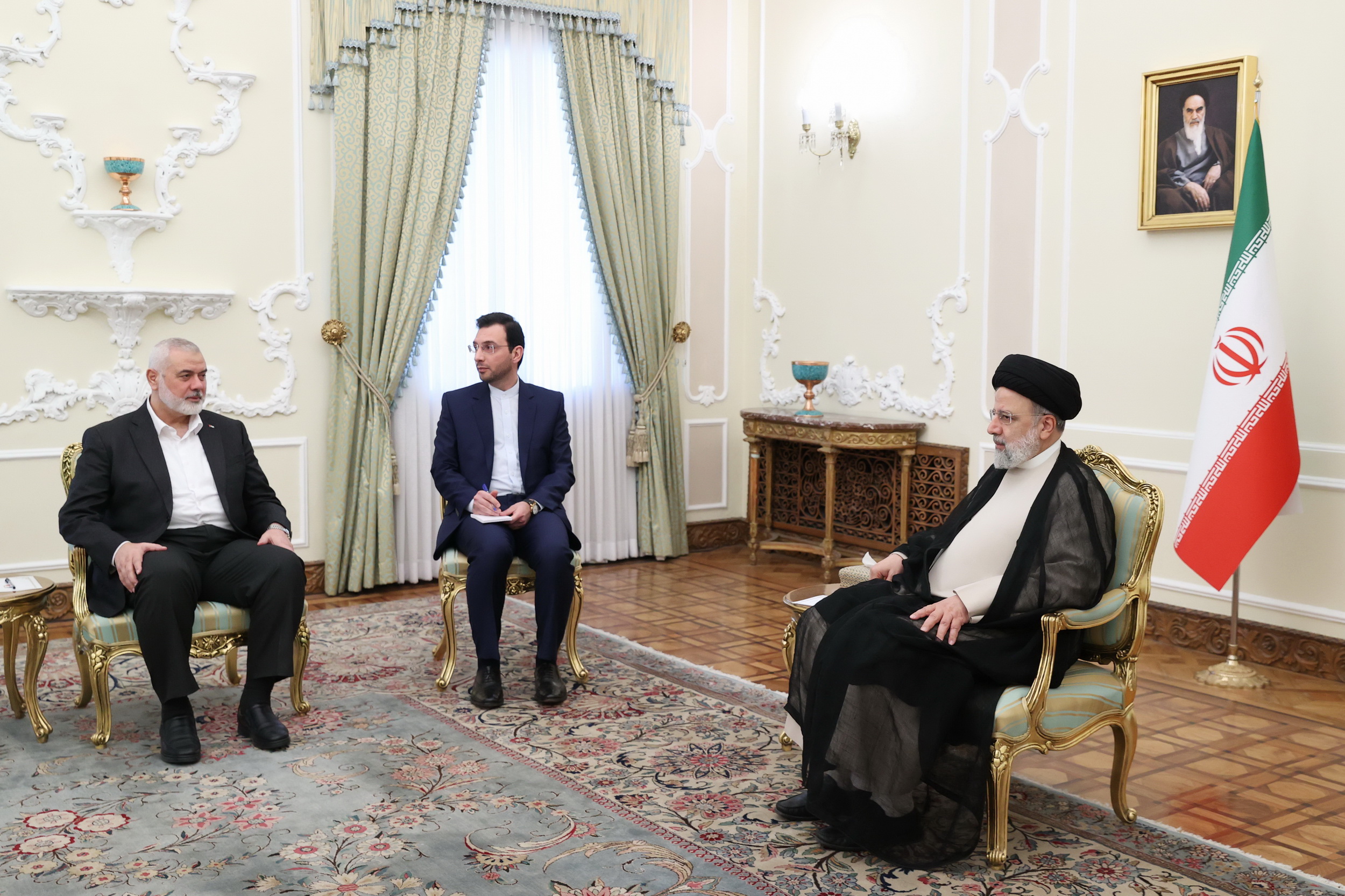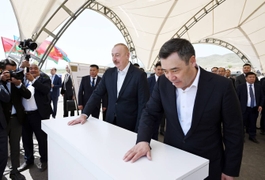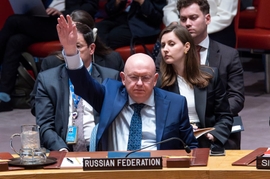Iran's President Ebrahim Raisi extended condolences to the Chairman of the Political Bureau of the Palestinian Hamas group, Ismail Haniyeh, following the death of his sons and grandchildren in Israel's recent airstrike.
"Undoubtedly, this crime revealed the barbaric and child-killing nature of this regime more than before, and showed it does not respect any human and moral rules while attempting to save itself from collapse and concealing its weakness, frustration and failure in confrontation with the Resistance Front," Raisi said in his message on April 10.
“Unfortunately, in the unprecedented crimes of the Zionist regime in history, self-proclaimed human rights advocates are not only observers, but with their silence and cowardly support, they provide the ground for the repetition of such crimes, and they are definitely accomplices to this hated regime,” he added.
Haniyeh’s three sons and grandchildren were killed in an Israeli air strike that targeted their car while they were touring the Al-Shati refugee camp in northern Gaza during the first day of Eid al-Fitr celebrations, which marks the end of Ramadan. Haniyeh confirmed the killing in an interview with Al Jazeera.
Haniyeh said the attack on his family is evidence of Israel’s “failure” as it continues to face Palestinian fighters in Gaza, adding that Hamas would not withdraw its demands, which include a permanent ceasefire and a return of displaced Palestinians to their homes.
Meanwhile, the Israeli news agency Walla said quoting senior Israeli officials that neither Israeli Prime Minister Benjamin Netanyahu nor Defence Minister Yoav Gallant had been told in advance of the strike, which was coordinated by the Israeli military and the Shin Bet intelligence service.
The killing of Haniyeh's relatives has added a potential complication to negotiations aimed at securing a ceasefire in Gaza in exchange for the return of the 133 Israeli hostages still believed to be held in the besieged enclave.
Iran has backed Hamas in the nearly six-month war with Israel, which is still reeling from the US decision not to veto the UN Security Council resolution demanding an immediate ceasefire. In March 2022, Haniyeh revealed that Iran paid a total of $70 million to Hamas to help it develop missiles and defense systems.
According to Haniyeh, different countries help finance the group, but Iran is the biggest donor. In 2018, US President Donald Trump’s special Middle East envoy Jason Greenblatt claimed that Iran provided $100 million annually to Hamas, compared to $700 million annually to Hezbollah.
During a meeting with the Hamas leader in late March, Iran’s Supreme Leader Ayatollah Ali Khamenei affirmed Iran’s commitment to support the Palestinian cause and the people of Gaza, praising the “Palestinian resistance’s public relations and media campaign” as surpassing that of Israel.
In the same meeting, Iran’s Foreign Minister Amir-Abdollahian praised the recent UN Security Council resolution calling for a ceasefire in Gaza as a “late but positive action and a political victory for the Palestinian nation.”
The Iranian minister added that Israel and the US “had not achieved any of their goals” and believed that eliminating Hamas and the resistance from Gaza was an “unattainable idea.”
Hamas is demanding an end to the Israeli offensive, a withdrawal of Israeli forces and permission for Gaza's displaced Palestinians to return to their homes. Meanwhile, Israel wants to secure the return of the hostages but says it will not end the war until Hamas is destroyed as a military force, and that it is still planning an assault on the southern city of Rafah, where more than a million civilians have taken refuge.
More than 33,000 Palestinians have been killed in Israel’s military offensive in the Gaza Strip since October 7, according to the Gaza health authorities, with most of the 2.3 million population displaced and much of the enclave laid to waste.
The war erupted after Hamas’ militants broke the border and rampaged through communities in southern Israel, resulting in the deaths of 1,200 people and the abduction of 253 people, according to Israeli sources.







 Kyrgyzstan has joined the extensive reconstruction efforts in the Karabakh region of Azerbaijan, after a series of mega initiatives were launched b...
Kyrgyzstan has joined the extensive reconstruction efforts in the Karabakh region of Azerbaijan, after a series of mega initiatives were launched b...
 President Ilham Aliyev shed light on the evolving contours of the peace process with Armenia during an international conference in Baku this week. ...
President Ilham Aliyev shed light on the evolving contours of the peace process with Armenia during an international conference in Baku this week. ...
 Azerbaijan and Armenia started the process of demarcation of their border on Tuesday, with the installation of the first border markers based on ge...
Azerbaijan and Armenia started the process of demarcation of their border on Tuesday, with the installation of the first border markers based on ge...
 As the conflict between Ukraine and Russia escalates, the strategic importance of Kharkiv, Ukraine's second-largest city, has come sharply into focus.
As the conflict between Ukraine and Russia escalates, the strategic importance of Kharkiv, Ukraine's second-largest city, has come sharply into focus.



